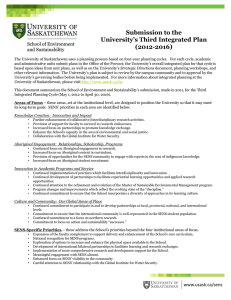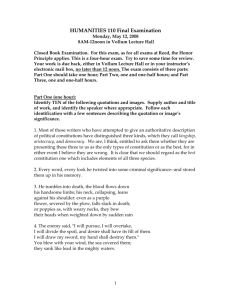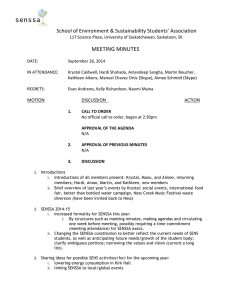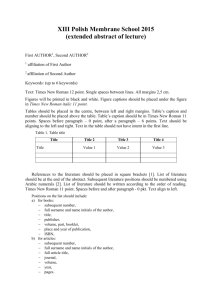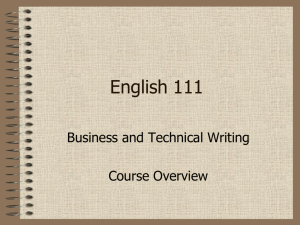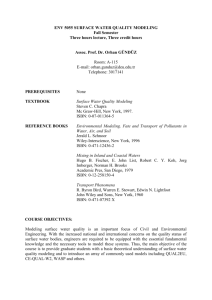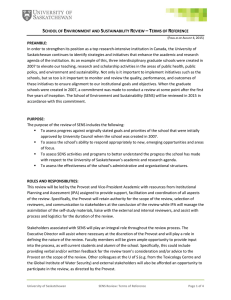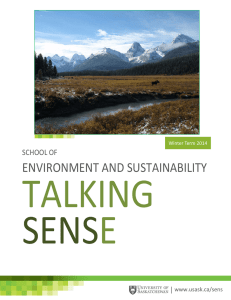Class 1 Introduction (three faculty)
advertisement
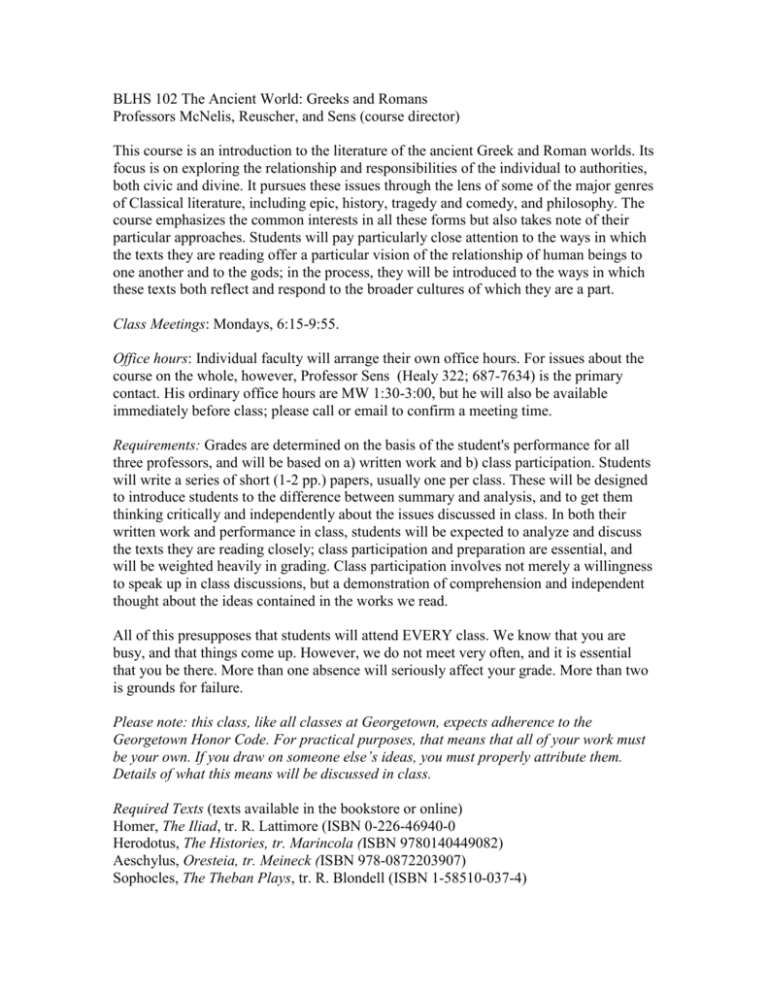
BLHS 102 The Ancient World: Greeks and Romans Professors McNelis, Reuscher, and Sens (course director) This course is an introduction to the literature of the ancient Greek and Roman worlds. Its focus is on exploring the relationship and responsibilities of the individual to authorities, both civic and divine. It pursues these issues through the lens of some of the major genres of Classical literature, including epic, history, tragedy and comedy, and philosophy. The course emphasizes the common interests in all these forms but also takes note of their particular approaches. Students will pay particularly close attention to the ways in which the texts they are reading offer a particular vision of the relationship of human beings to one another and to the gods; in the process, they will be introduced to the ways in which these texts both reflect and respond to the broader cultures of which they are a part. Class Meetings: Mondays, 6:15-9:55. Office hours: Individual faculty will arrange their own office hours. For issues about the course on the whole, however, Professor Sens (Healy 322; 687-7634) is the primary contact. His ordinary office hours are MW 1:30-3:00, but he will also be available immediately before class; please call or email to confirm a meeting time. Requirements: Grades are determined on the basis of the student's performance for all three professors, and will be based on a) written work and b) class participation. Students will write a series of short (1-2 pp.) papers, usually one per class. These will be designed to introduce students to the difference between summary and analysis, and to get them thinking critically and independently about the issues discussed in class. In both their written work and performance in class, students will be expected to analyze and discuss the texts they are reading closely; class participation and preparation are essential, and will be weighted heavily in grading. Class participation involves not merely a willingness to speak up in class discussions, but a demonstration of comprehension and independent thought about the ideas contained in the works we read. All of this presupposes that students will attend EVERY class. We know that you are busy, and that things come up. However, we do not meet very often, and it is essential that you be there. More than one absence will seriously affect your grade. More than two is grounds for failure. Please note: this class, like all classes at Georgetown, expects adherence to the Georgetown Honor Code. For practical purposes, that means that all of your work must be your own. If you draw on someone else’s ideas, you must properly attribute them. Details of what this means will be discussed in class. Required Texts (texts available in the bookstore or online) Homer, The Iliad, tr. R. Lattimore (ISBN 0-226-46940-0 Herodotus, The Histories, tr. Marincola (ISBN 9780140449082) Aeschylus, Oresteia, tr. Meineck (ISBN 978-0872203907) Sophocles, The Theban Plays, tr. R. Blondell (ISBN 1-58510-037-4) Livy, Rise of Rome; Books 1-5, tr. T. Luce (ISBN 019-282296-9 Vergil, The Aeneid, tr. R. Fitzgerald (ISBN 067-972952-6) Plautus, Amphitryo (provided as xerox) Apuleius, The Golden Ass, tr. E.J. Kenney (014-043590-5) Plato, Five Dialogues Introduction to Aristotle Augustine, City of God (xerox) Outline of course meetings (subject to revision) Class 1: Introduction (Sens) This session will be particularly important for establishing a broad chronological and geographic overview of the course and for establishing its themes and focuses. Class 2: Homer, Iliad (1-12) (Sens) Issues to be discussed include Achilles’ position relative to the Greeks; his relation to the gods; Hector and his family and the tension between “epic” expectations and his own familial obligations; “the heroic code;” relationship of East and West. Class 3: Homer, Iliad (13-24) (Sens) This class will focus on how the issues raised in the preceding class play out in the second half of the poem, with particular attention to the culmination of the poem in Book 24. Class 4: Vergil (1-6) (McNelis) Students will study the particularly Roman engagement with Homer; issues to be discussed include Aeneas’ position relative to Troy, to Rome and the gods. Special attention will be paid to the way the poem locates itself in an ongoing epic tradition. Class 5 (Oct. 5): Vergil (7-12) (McNelis) In this class, students will pay particular attention to the ways in which Vergil redeploys the Homeric value system in significant and provocative ways, especially as his poem comes to a close. Class 6 (Oct. 19): Herodotus, Histories Book 1 (selections) and Livy Book 1 (Sens) Students focus on the genre of history by reading the first book of Herodotus, paying particular attention to the way that work represents humans’ relationship to the divine world, as well as to questions of epistemology and teleology; the conflict between “East” and “West” (Greeks and non-Greeks) is also considered. Roman developments of the genre in Livy will then be considered. Class 7: Aeschylus, Agamemnon (Sens) After a brief overview of ancient drama, the class focuses on the ways in which Aeschylus represents the relationship between gods and men and the working of divine justice over time. In addition, the class raises the question of the relation between house and society (and the correlative relationship between female and male). Class 8: Sophocles, Antigone; Plautus, Amphitryo (Sens and McNelis) This section is ideally to be taught jointly by specialists in Greek and Roman literature. In considering these play—one a Greek tragedy, the other a Roman comedy—students will confront the way the stages can represent basic human tension between law and religion, house and society at large, male and female. Class 9: Apuleius: Apuleius, Metamorphoses (The Golden Ass) (McNelis) This class will introduce a new genre, the novel. Students will consider the way Apuleius represents the place of religion in Roman society, with special focus on his treatment of the problematic relationship between worship and morality. Class 10 (Nov. 16): Philosophy (Plato’s Apology; Crito, Phaedo) (Reuscher) The class introduces students to ancient philosophy, which was not treated as a separate genre until the Classical period. After a brief survey of the pre-Socratic background, students will pay attention to way some early Socratic dialogues represents religion and morality in a civic context and treat the relation between religion and knowledge. The class will include a basic introduction to the Platonic idea of forms. Class 11: Plato, Republic 1 (Reuscher) Here students focus on the most famous Platonic treatment of the best society. Focus will again be on the responsibilities of the individual to the larger community. Class 12: Aristotle, Nicomachean Ethics 1 (Reuscher) Here students consider Aristotle’s response to Plato, with particular attention to his basic teleological and ethical assumptions. Class 13: Augustine and the transformation of the Classical past (Reuscher) Students read selections from Augustine’s City of God; focus will be on the way that Augustine translates Classical philosophical and literary forms and ideas to a Christian context. Class 14: Group session (McNelis, Reuscher, Sens). Do not miss this class.
